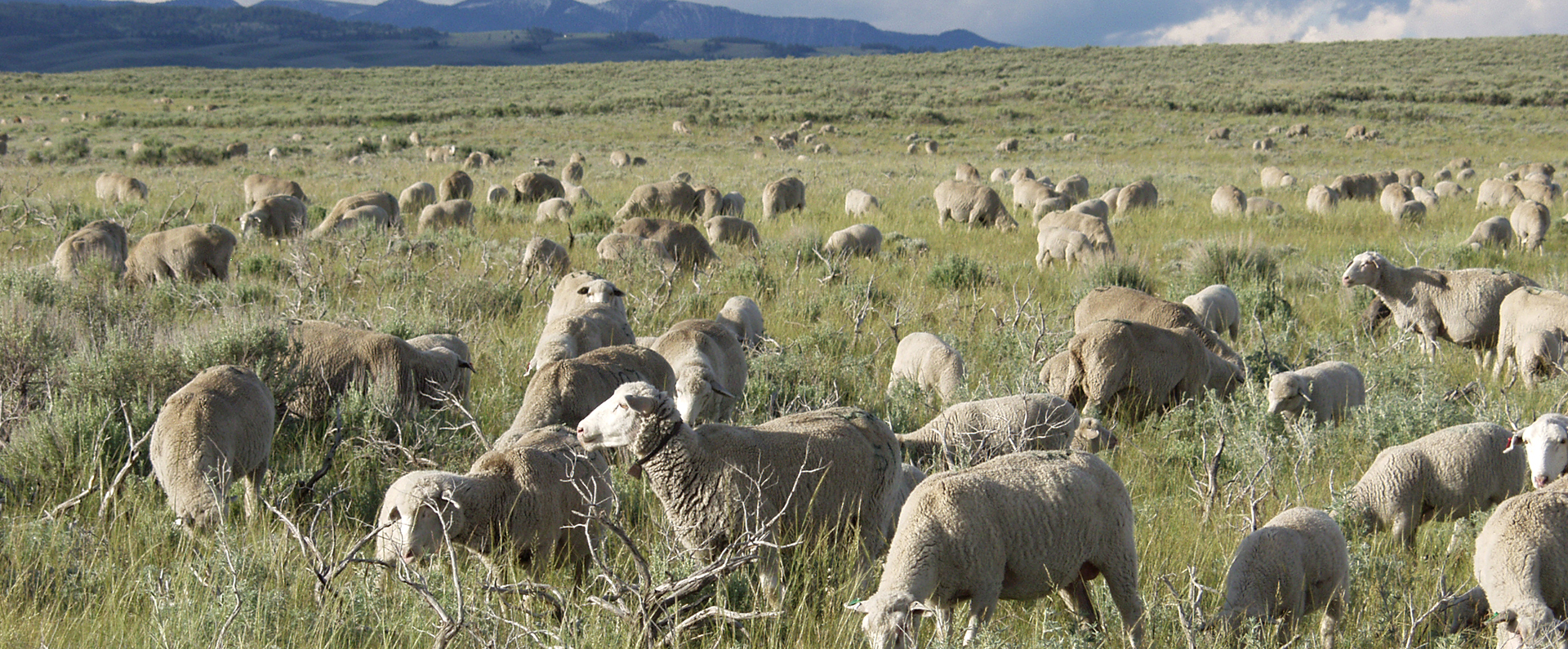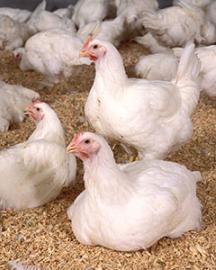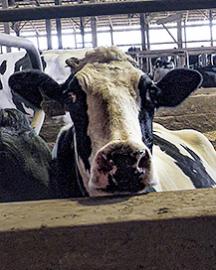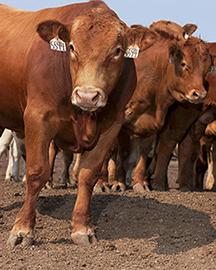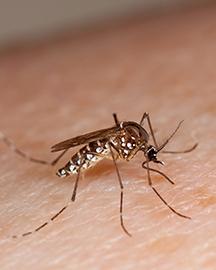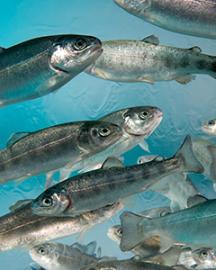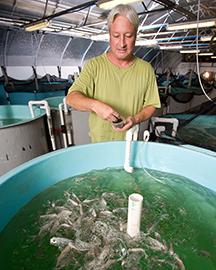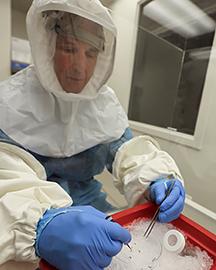Targeting Taste Buds, Targeting Grazing
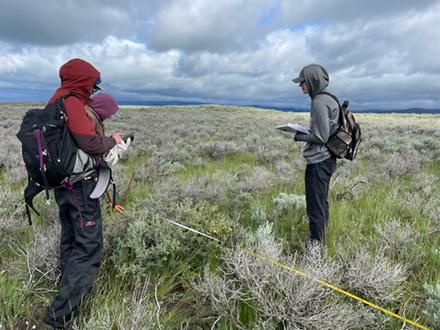
Scientists at the ARS Range Sheep Production Efficiency Research Unit in Dubois, ID, are taking grazing to a new level by developing sheep that prefer or tolerate the bitter taste of plants. Here in the Intermountain West, land managers are looking for ways to use livestock to protect and improve the sagebrush ecosystem, which is a necessary resource for wildlife, rural communities, and ranchers. Sagebrush is a shrub that can have a bitter taste for grazers, such as sheep.
Scientists believe that the “bitter taste” trait is heritable, passed from parents to their young. Scientists have launched a series of studies to discover if they can accurately identify and breed sheep with these specific “herbivory” or plant selection preferences. If successful, these unique sheep may be used to manage rangelands and make them more resistant to catastrophic wildfire and invasive and noxious plant species, which are the greatest threats to the survival of sagebrush ecosystems.
Related Information
Research Project: Enhancing Sheep Enterprises and Developing Rangeland Management Strategies to Improve Rangeland Health and Conserve Ecology


